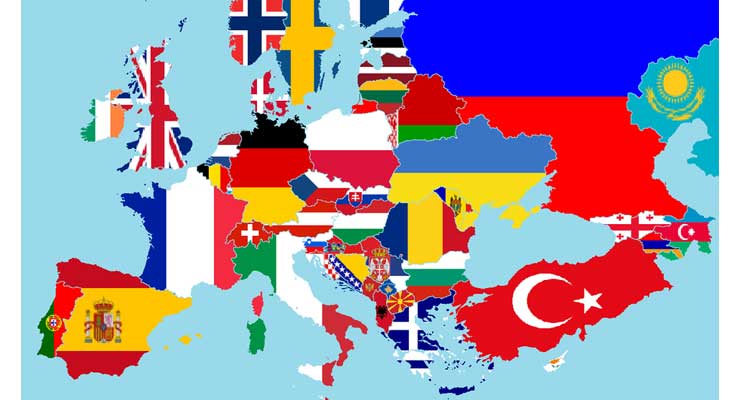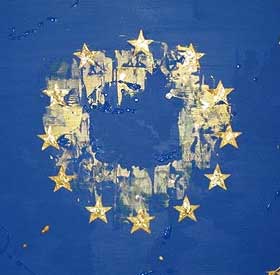
Leaders from the European Union have postponed talks on the future of the institution until December as numerous crises have developed over recent years testing the unification of the organization to near breaking point. “There will be a short report on EMU (the Economic and Monetary Union), but there is no readiness for and no reform consensus between Germany and France” an anonymous EU senior official said.
The institution has been under pressure from both countries on the outside and also member states as the debt crises in Greece that started 2010 started a downward spiral for the organization as Greece has threatened numerous times to default on its debt and leave the EU. “We have not had such divergent views for a long time, so it will be very dangerous now if this discussion was opened because it will reveal all the differences” the anonymous EU official continued in the statement.
 The differences that the official refers to includes a clash of opposing views on the economic crisis in Greece that has pitted the richer nations in the EU (particularly Germany) who are in favor of keeping Greece in the EU and many of smaller economies (including some of those inside Greece) in favor of Greece leaving the Eurozone. The fear also comes because many feel that if Greece leaves the EU, then many of the debt plagued countries who make up the debt crisis, ex, Spain, Portugal and Ireland will leave, causing the dissolving of the institution.
The differences that the official refers to includes a clash of opposing views on the economic crisis in Greece that has pitted the richer nations in the EU (particularly Germany) who are in favor of keeping Greece in the EU and many of smaller economies (including some of those inside Greece) in favor of Greece leaving the Eurozone. The fear also comes because many feel that if Greece leaves the EU, then many of the debt plagued countries who make up the debt crisis, ex, Spain, Portugal and Ireland will leave, causing the dissolving of the institution.
The new date for the meeting is scheduled for December. The economic crisis in Greece has seen the unemployment rate remain as high as 25% when statistics were last released in July of 2015. The unemployment rate peaked at 27.90% during the height of the crisis in September 2013.
Another critical issue that has challenged the institution includes the refugee crisis that has seen thousands arrive to the continent from Syria and the Middle East. According to reports, Germany is prepared to accept 800,000 refugees, but that number may increase to one million as violence continues to spread throughout Iraq and the Syrian Civil war continues into its fourth year. The war started with protest on March 15th, 2011 which then spread to violence as protesters attempted to overthrow longtime President Bashar Al-Assad.
The crisis has affected the EU as the migrants have attempted to cross into Europe via smugglers across the Mediterranean Sea into Greece and then attempt to make their way to asylum friendly countries of Germany and northern European Countries (many of whom, like Sweden have relatively accepting laws for incoming migrants.) Some 234,000 refugees have arrived in Greece via the Mediterranean Sea in 2015 while an estimated 110,000 have landed in Italy.
“At the same time, some 2,500 refugees and migrants are estimated to have died or gone missing this year” UN Refugee spokeswoman, Melissa Fleming said during a press conference in late August in Geneva Switzerland.
According to the UN refugee agency, an estimated 3,500 refugees died in the Mediterranean in 2014.
“The European Council will revert to these issues at its December meeting” a draft memo said regarding the migrant crisis and the economic crisis.
Ultimately, the idea of the European Union would be of great benefit for a continent whose history is a long one of violence and turmoil. But if Europe cannot work together on major issues like economics and immigration then the institution risks going back to what it was before the Cold War when countries were bitterly divided along ideological lines.
Leave a Reply